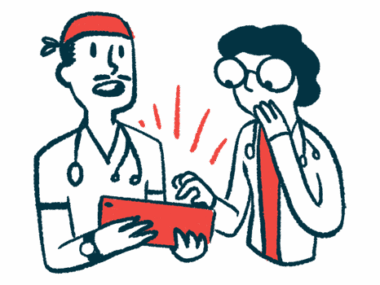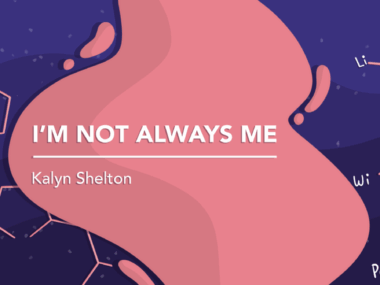How I Avoid the ‘Sick Olympics’
Written by |

Acute hepatic porphyria (AHP) is a complex rare disease that takes up a lot of brain space. Nothing is more exciting than when I can tell someone who actually understands it about how it feels, acts, and responds. Venting and story sharing are one thing. Living in perpetual rare disease drama is quite another.
A recent conversation resembled a pingpong match as two friends living with AHP discussed their most traumatizing disease experiences. Back and forth they went, listening and relating to the other by way of one-upping. Pushing the situation further with each stroke, they took turns sharing a slightly more dramatic porphyria attack war story.
I’ve noticed when a group of medically traumatized people get together, there’s a good chance a discussion about symptoms will rapidly divulge into a comparison of suffering. A dear friend with chronic illness referred to this phenomenon as “the Sick Olympics.”
There was a not-so-distant time in my life when I would’ve excitedly picked up a paddle and joined in, only to leave the game feeling drained and unfulfilled. I recently realized that I don’t grow and flourish from this way of connecting with others. I wanted more.
Knowing conversations with my chronically ill friends tend to veer in that direction often, my intentions must be clear. Here’s how I am learning to avoid the Sick Olympics.
Understanding the function
I recently wrote about how my unprocessed medical trauma kept me stuck in a perpetual state of victimhood, where I craved the sympathy of others because I could not access my own. Making bids to compete in the Sick Olympics is related to this concept.
I’ve learned that when I am complaining and wallowing to friends, it’s because I want pity. If I want to be pitied, I’m not nurturing myself. So if I can find the compassion within rather than burdening others with that need, my competitive behavior stays in check.
Deciding on the friend I want to be
I wanted friendships that were based on sharing lessons learned and helping each other grow. I can spend a lot of time talking to friends with AHP, and I wanted to be able to hang up the phone and feel good about how I showed up, regardless of the topics discussed.
I didn’t want to build my friendships on drama and negativity. Nor did I want to be the friend people called when they needed to unload, or a listening ear for ruminating anxiety and outrage over the injustices of the medical system.
Preventing the spiral
Knowing the type of friend I wanted to be, I had to practice asserting boundaries.
When I speak to a friend with acute porphyria, I expect our conversation will be dominated by aspects of our shared disease experience. It’s up to me to redirect or halt a conversation before it encroaches on comparing our suffering. I recently interrupted a group discussion with a joke about competing in the Sick Olympics, and that was all it took to laugh and move on.
Friendships with others who share your diagnosis can be among the most valuable and fulfilling in our social circles. But the comparison game can all too often obstruct growth and meaningful connections. Using intentional boundaries, we can work to stop the Sick Olympics in its tracks.
Note: Porphyria News is strictly a news and information website about the disease. It does not provide medical advice, diagnosis, or treatment. This content is not intended to be a substitute for professional medical advice, diagnosis, or treatment. Always seek the advice of your physician or other qualified health provider with any questions you may have regarding a medical condition. Never disregard professional medical advice or delay in seeking it because of something you have read on this website. The opinions expressed in this column are not those of Porphyria News or its parent company, Bionews, and are intended to spark discussion about issues pertaining to porphyria.






Julie Cosgrove
Beautiful article! Thank you for sharing
Claire Richmond
Thank you for reading, Julie!
Linda J Haynes
I love this Claire. So powerful. I wholeheartedly agree! Awesome article.
Claire Richmond
Thanks for your continued readership, Linda!